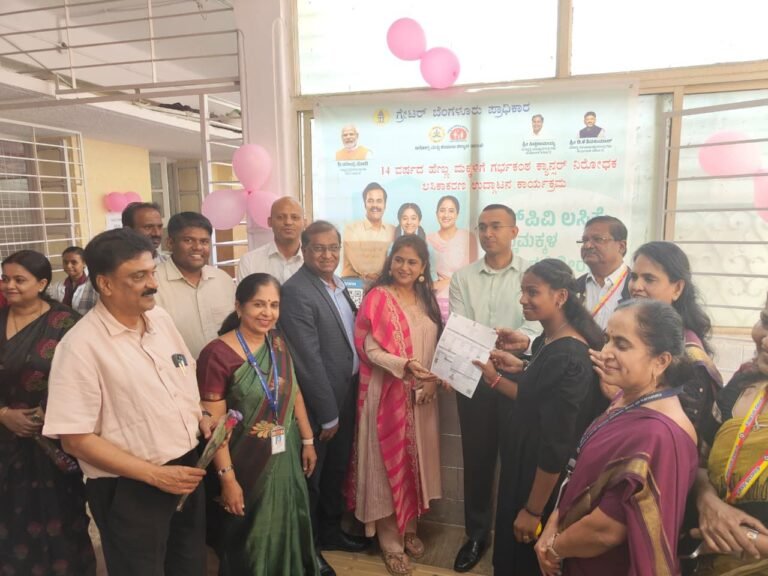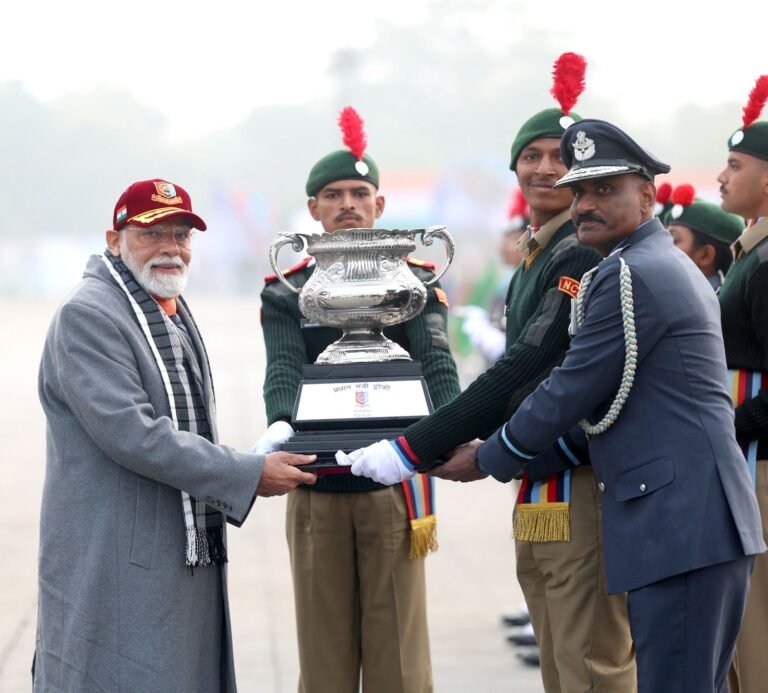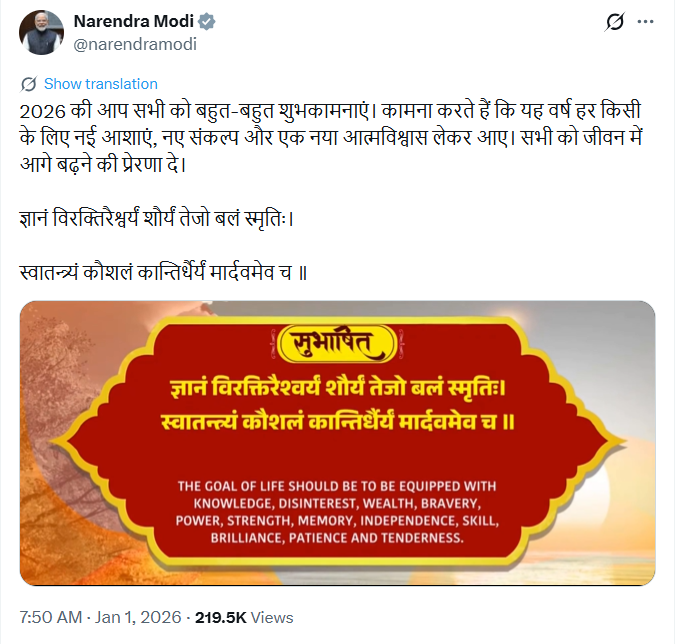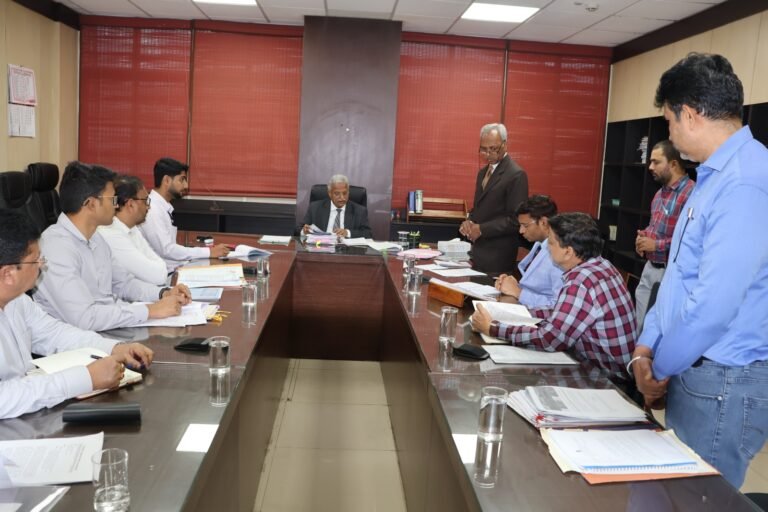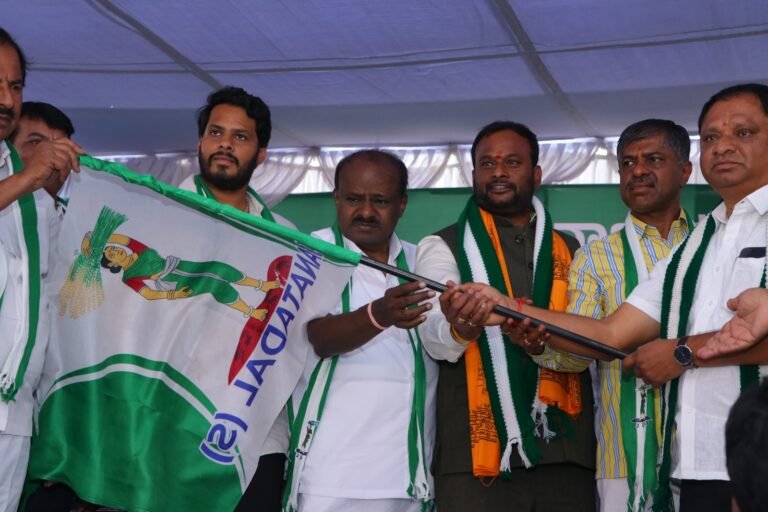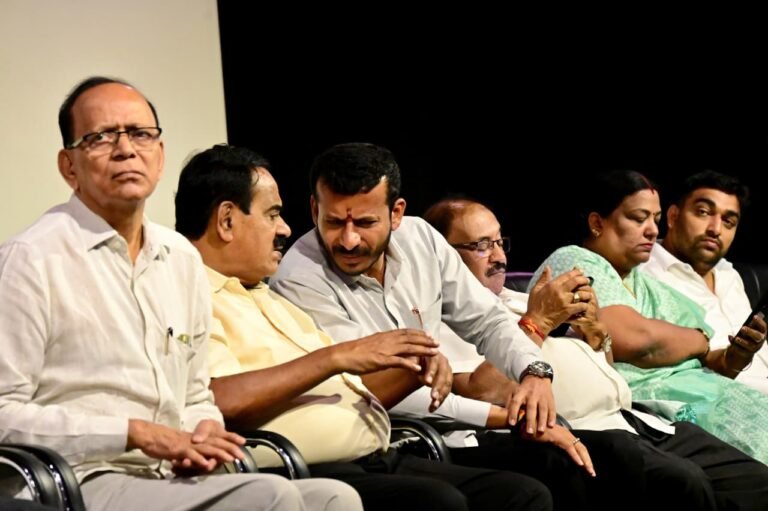
NEW DELHI:
Prime Minister Narendra Modi on Sunday dedicated the new Parliament building to the nation by unveiling the plaque marking the inauguration. Ahead of the inauguration, the PM also felicitated the construction workers with traditional shawls and handed over mementoes.
Meanwhile, ‘Sarv-dharma’ prayers are underway at the new Parliament building, with priests from different religions reciting the traditional verses. Earlier, Prime Minister Modi installed the sacred ‘Sengol’ in the new Lok Sabha chamber, right next to the Speaker’s chair, after performing puja.
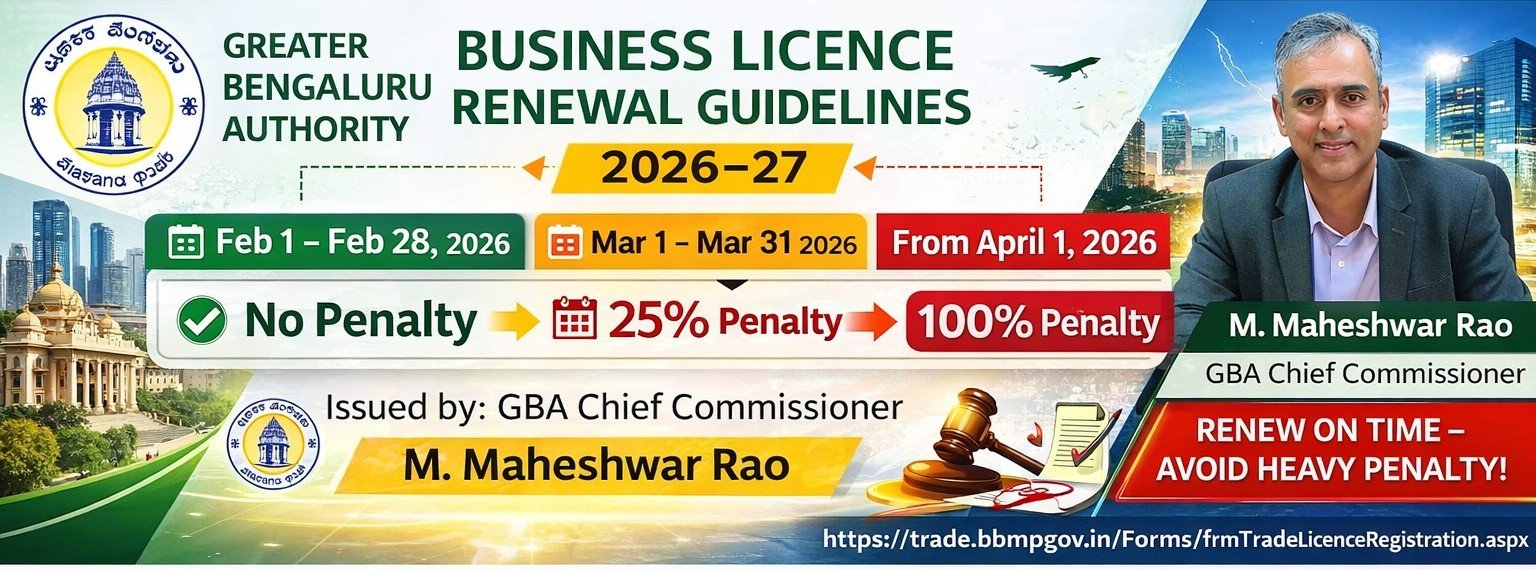
Published In Public Interest by thebengalurulive.com
PM Modi also bowed down as a mark of respect before the ‘Sengol’ during the ceremony to mark the beginning of the inauguration ceremony. He was handed over the historic ‘Sengol’ by Adheenams before its installation in the new Parliament building. The ‘Sengol’ was installed as a national symbol of the Amrit Kaal.
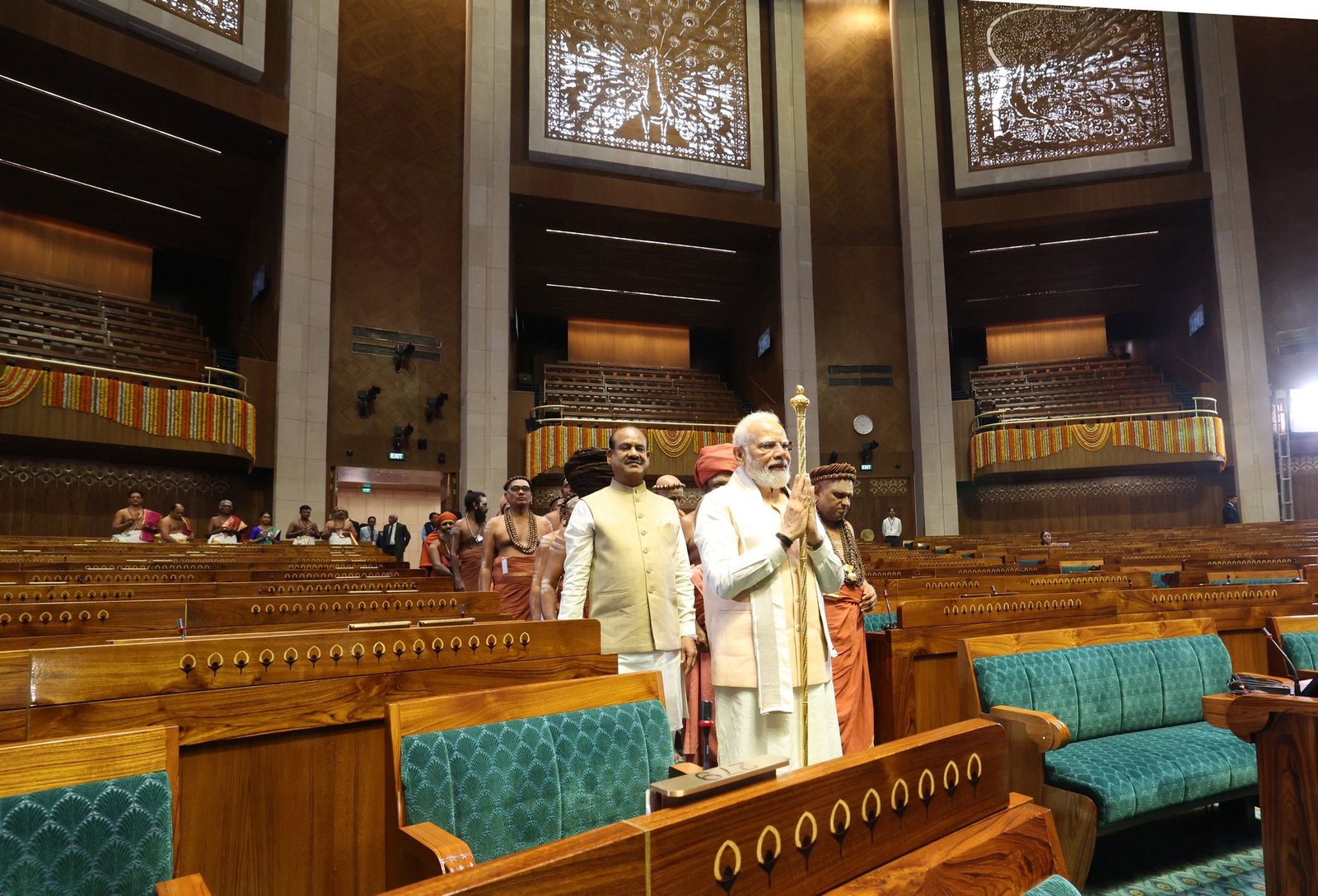
After the installation of ‘Sengol’, the Prime Minister also received the blessings of seers of different Adheenams from Tamil Nadu. This is the same Sengol that was accepted by the first Prime Minister of India Jawaharlal Nehru at his residence on the night of August 14, in the presence of several leaders.
The inauguration ceremony of the new Parliament building began with a traditional ‘pooja’ with Vedic rituals. Lok Sabha Speaker Om Birla was also present along with PM Modi during the pooja. It is learnt that after the pujas, the dignitaries will examine the premises of the Lok Sabha’s chamber and the Rajya Sabha chamber in the new building.
The morning phase will end at close to 9:30 am after which the second leg of the ceremony is expected to begin at noon with the singing of the national anthem in the Lok Sabha chamber in the presence of all the dignitaries including PM Modi. At 11:30 am, all the invitees including members of Parliament, Lok Sabha Speaker and Rajya Sabha, chairman and other distinguished guests are expected to be seated in the Lok Sabha chamber in the new building.
आज का दिन हम सभी देशवासियों के लिए अविस्मरणीय है। संसद का नया भवन हम सभी को गर्व और उम्मीदों से भर देने वाला है। मुझे पूर्ण विश्वास है कि यह दिव्य और भव्य इमारत जन-जन के सशक्तिकरण के साथ ही, राष्ट्र की समृद्धि और सामर्थ्य को नई गति और शक्ति प्रदान करेगी। pic.twitter.com/aOReN4JiF4
— Narendra Modi (@narendramodi) May 28, 2023
During this phase, a speech will be delivered by the Deputy Rajya Sabha Chairman, Hariwansh, who will further read a written congratulatory message on behalf of Rajya Sabha, Chairman, Jagdeep Dhankar.
A written message by President Droupadi Murmu will also be read out on the occasion. The present building of the Parliament was completed in 1927 and is now going to be almost 100 years old. The lack of space was being experienced in this building as per the present requirements. In both Houses, there was also a lack of convenient arrangements for the sitting of the MPs which was affecting the efficiency of the work of the Members.
Considering the above, both the Lok Sabha and the Rajya Sabha passed resolutions urging the government to construct a new building for the Parliament. Consequently, on December 10, 2020, the foundation stone of the new building of Parliament was laid by Prime Minister Narendra Modi. The newly constructed Parliament building has been built in record time with quality construction. Now the newly constructed building of Parliament, which will work to further enrich India’s glorious democratic traditions and constitutional values, is also equipped with state-of-the-art facilities which will help the Members to perform their functions in a better way.
The new Parliament building will enable 888 members to sit in the Lok Sabha. In the present building of the Parliament, there is a provision for the sitting of 543 Members in the Lok Sabha and 250 in the Rajya Sabha.
Keeping in view the future requirements, arrangements have been made for a meeting of 888 members in the Lok Sabha and 384 members in the Rajya Sabha in the newly constructed building of the Parliament. The joint session of both Houses will be held in the Lok Sabha Chamber. (ANI)


